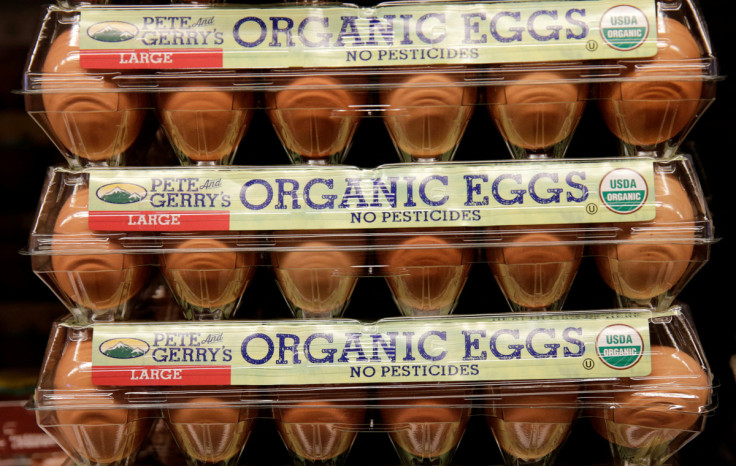Dollar Tree To Stop Selling Eggs: How Rising Prices Put Pressure On Businesses, Consumers
KEY POINTS
- Due to the rising egg prices, retailers are looking for alternatives
- Experts have linked the short supply of eggs to avian flu outbreak
- The disease is spread through wild birds when they mix with poultry flocks
Dollar Tree has announced it will pull eggs from its shelves after not being able to make a profit, amid high prices of the item.
Over the past year, egg prices have soared by over 60%, resulting in grocery stores scrambling to do business, Reuters reported. While some retailers have raised egg prices for consumers to adjust to the higher costs, the popular discount store does not have enough flexibility to do so.
"Our primary price point at Dollar Tree is $1.25. The cost of eggs is currently very high," said company spokesperson Randy Guiler, CNN reported.
Dollar Tree, which has around 9,000 stores across the U.S., said it will be able to bring back eggs when "costs are more in line with historical levels."
Impact of rising egg prices on businesses
Considering that eggs are a staple product for American consumers, a number of grocers are making efforts to keep the prices competitive. Several retailers even said they sacrificed their profits on eggs for some months to ensure the prices remain as low as possible.
Cal-Maine Foods, the largest egg producer in the U.S., pointed out that the avian-influenza outbreak was highly likely to keep the egg supply across the nation tight. As a result, several supermarket operators were trying to look for more egg alternatives or other varieties such as organic eggs to keep profits up, as per Wall Street Journal.
Food distributors like Gordon Food Service have been offering liquid eggs that are cheaper than shelled ones. California-based Eat Just saw the sale of its plant-based Just Egg brand grow steadily in 2022 after the rise in prices of conventional eggs.
To offset the rising costs, a number of restaurants have hiked the prices of the egg-based items on their menu.
"What used to be $40 for a box of 120 eggs, we now pay over $100," Julia Yum, owner of a 24-hour deli in New York City, told CNBC. "We have to keep it affordable. We don't want to lose our customers or anything more than we lost because we're already feeling the effects of [costs] increasing."
Why are egg prices rising?
Egg production and prices have been hit hard by short supply in the aftermath of the avian flu outbreak, which killed more than 50 million birds in the U.S. in 2022.
Even as farmers are doing their best to limit the spread of the avian flu virus, the disease is easily spread through wild birds when they mix with poultry flocks, along with contaminated equipment and clothes.
The prices of the eggs have also been influenced by labor shortages and supply chain issues, which resulted in the rise of food costs by 10.1% last year.
In February, egg costs skyrocketed to 38% for producers and 55% for shoppers annually, even after a decline in prices for a brief period. The retail price for a dozen large eggs in California, for instance, rose to $7.37, up from $2.35 a year ago, as per a recent US Department of Agriculture report.
The egg prices fell by 6.7% in February as compared to January, the Bureau of Labor Statistics reported, which might be due to a decline in demand by the customers. However, it doesn't seem like this dip will last as Easter, which falls on April 9 this year, approaches.

© Copyright IBTimes 2024. All rights reserved.





















